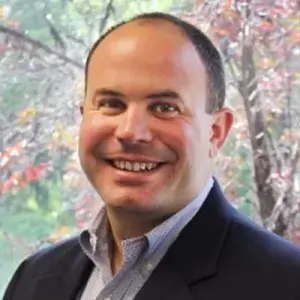 Christopher Stevenson Christopher Stevenson CUES® School of Business Lending is returning in 2023 in a convenient online format, April 1-October 30. “CUES School of Business Lending helps attendees understand everything needed to launch or improve their business lending programs,” said Christopher Stevenson, CAE, CIE, CUES SVP/Chief Learning Officer. “The curriculum was created and is taught by two of the best minds in the business, who also train industry examiners—Jim Devine, Founder, Chairman & CEO and Bob Hogan, Founder, President & COO, of Hipereon, Inc.” Over the course of the 30-week class, attendees will learn from a combination of live Zoom discussions, self-paced lectures, quizzes and case studies, covering:
Attendees will also benefit from a cohort-style program, making it easy for them to network and form connections with classmates during the live sessions and in the Business Lending online community. The curriculum also covers smart growth strategies to implement, roadblocks to profitability to avoid, and unique risk considerations for differing industries. “When we ask business owners what they are looking for from their lender, they often note they’d benefit from someone who understands business model structure and can help them learn how to make better business management decisions,” Jim noted in the article, What’s The Best Way To Get More Small-Business Loans Today? “CUES School of Business Lending guides attendees in ways to become business model structure experts who can build relationships with business owners. We want them to be capable and confident so they can talk with a business owner about how to be successful, and become their partners in success and profitability.” Learn more about CUES School of Business Lending and register now at cues.org/SOBL. Learn more about CUES at cues.org.
0 Comments
 Scott Wagner Scott Wagner PSCU, the nation’s premier payments credit union service organization (CUSO), has announced that AMOCO Federal Credit Union (AMOCO FCU) has selected the CUSO for full-service credit card processing support and services. Headquartered in Texas City, Texas, AMOCO FCU began as the Pan Am Employees Federal Credit Union in 1937 to serve the financial needs of Pan American Refining Corporation of Texas City employees. Today, the credit union has expanded to include more than 100,000 members in and beyond Texas. Now recognized as one of the largest credit unions in the Houston/Galveston area, AMOCO FCU continues to embody its original mission of serving the financial needs of its members. Holding more than $1.3 billion in assets, AMOCO FCU was seeking a robust solutions provider to help provide an industry-leading credit card program to its members. After evaluating several potential providers, AMOCO FCU selected PSCU. “With an eye toward our future growth, AMOCO FCU has identified PSCU as the ideal partner to elevate and enhance our credit program,” said Darby McDermott, EVP of Operations at AMOCO FCU. “We look forward to working alongside PSCU to advance our credit union’s best-in-class products and member service.” PSCU will begin providing credit processing support to AMOCO FCU members in September 2023. “AMOCO FCU shares our dedication to unparalleled member service and experiences, as well as a commitment to the credit union philosophy of ‘people helping people,’” said Scott Wagner, EVP, chief revenue officer at PSCU. “We are extremely pleased to have the opportunity to provide reliable, safe and innovative card processing support to AMOCO FCU and its members.”  Nick Evens Nick Evens Curating an exclusive yet ever-growing roster of fintech solutions, Curql Collective has announced the addition of Ever Green 3C to its fintech ecosystem. As a new subscriber to the Curql Collective, Ever Green 3C will offer subscribing and investor credit unions its innovative solutions designed to help credit unions deepen relationships with members. Ever Green 3C provides financial education resources to help credit unions build financial literacy for members and communities through interactive web, mobile, or in-person content. Created by certified financial educators and branded to each credit union, Ever Green 3C's content is specifically geared toward teens and young adults to help credit unions forge deeper member relationships with this up-and-coming demographic. "Credit unions play a vital role in the financial well-being of their members and communities, and providing education is one way we can support them in achieving their financial goals," says Susi Elkins, President of Ever Green 3C. "We are thrilled to be a part of Curql's fintech ecosystem and connect with credit unions looking for an innovative financial wellness solution." “The resources provided by Ever Green 3C are top notch,” said Nick Evens, Curql Collective CEO & President. “Financial literacy is an important issue, and Ever Green 3C is well equipped to support Curql credit unions in providing valuable financial education for their members, especially those credit unions that seek to engage with a younger audience.”  First Financial Federal Credit Union deepened its commitment to the Carroll County community by donating a total of $35,000 to benefit three Carroll County partner organizations. The credit union recently pledged $100,000 over a 5-year period to the Carroll Community College Foundation. Beginning in 2023 through the 2027/2028 school year, First Financial will donate $20,000 each year to the Foundation. Proceeds will benefit their Athletic Program, New Start Program, and Student Emergency Assistance Fund. First Financial and Carroll Community College have partnered for the benefit of the Carroll County community for 25 years. This commitment will allow the organizations to continue their partnership for years to come. First Financial also made a $10,000 donation to Carroll County Food Sunday (CCFS), a non-profit organization who has played a critical role serving the food-insecure population within Carroll County since 1982. Every week, CCFS distributes nutritionally balanced grocery packages that consist of meat, eggs, fruits, vegetables, bread, and milk to over 400 families in the Carroll County community. First Financial’s donation will help purchase food and resources to support their weekly distribution. Additionally, FFFCU made a $5,000 donation to its partner of 32 years, Carroll County Public Schools (CCPS). The donation will go toward the Student Support Fund of CCPS and will give families in the community access to a variety of resources such as clothing, shoes, musical instruments, food, and clean bedding when it is needed the most. “First Financial has been committed to the Carroll County community for over 30 years,” said Eric Church, President and CEO of First Financial. “These organizations have been successful in assisting those in need throughout Carroll County and partnering with them helps pave the way to an even stronger community that First Financial is honored to support and serve.” For details on First Financial outreach initiatives held throughout the year, visit firstfinancial.org/community. To learn more about being a part of the First Financial difference, visit firstfinancial.org or call Member Services at 410-321-6060, option 5.  Landon Glenn Landon Glenn ASA is an embedded fintech platform that connects financial institutions with customer-facing fintechs in a secure, compliant and easy to implement marketplace. The company experienced notable momentum in 2022, including new clients, key partnerships, strategic leadership additions and the launch of its embedded fintech marketplace. ASA has created the collaborative banking movement, a new form of open banking in which banks and credit unions maintain ownership and control of customer data in a safe, secure environment and provide financial empowerment through individualized choice. More than 25 community financial institutions, such as Pyramid FCU and University Credit Union, and fintechs have partnered with ASA, delivering one-click access to the latest technology for customers and members, all without ever having to share PII data, empowering banks and credit unions to be the gateway to the technology their account holders crave. Last year marked significant innovation; ASA launched its patent-approved app, ASA Vault, in the Apple App and Google Play Stores, enabling partnership at scale by connecting financial institutions with customer-facing fintechs. The full pilot version will be released next month, including an asset tracker that centralizes and aggregates all relevant accounts, assets, debt and identity data into a single location. Such functionality drives stronger and more frequent engagement with partner banks and credit unions. ASA’s unique model continues to be recognized by the industry, winning the BECU Fintech Incubator Competition, powered by CoMotion. Such innovation also attracted several industry leaders, including former executive vice president and corporate CIO at JP Morgan Chase Austin Adams and former BECU CEO and president Benson Porter to its board of directors. And, longtime ABA executive Lisa Gold Schier joined the company as chief strategy officer, helping drive the organization’s strategy, innovation and growth. “ASA’s collaborative banking movement allows banks and credit unions to be at the center of providing customers with control of their data while facilitating secure connections with technology that fits customers’ unique needs,” said Landon Glenn, CEO and founder of ASA. “The momentum we experienced last year reinforces that our model is resonating, and we look forward to helping even more institutions and fintechs reinvent how they approach partnership, all for the end user’s financial empowerment, this year and beyond.”  Dan Berger Dan Berger Quick update: The Credit Union Board Modernization Act (CUBMA) just passed in the House by voice vote. This bill will reduce the minimum number of monthly meetings credit union boards are required to hold from 12 to six. The legislation now heads to the Senate for consideration. “The House’s swift passage of the Credit Union Board Modernization Act is a testament to the credit union industry’s commitment to their members. NAFCU and our member credit unions fought to make lawmakers aware of outdated requirements that can be costly and impact the ability to serve members. Reducing the number of required annual meetings and recognizing the need for modernization in the Federal Credit Union Act will allow credit unions to utilize resources better and focus their efforts on serving their 134 million members and the underserved communities in need of safe, affordable financial products and services. We thank Representatives Vargas and Huizenga for their leadership on this issue and we urge the Senate to follow the House’s lead and pass this legislation without delay.” - NAFCU President and CEO Dan Berger  Michael Berman Michael Berman Ncontracts, the leading provider of integrated compliance and risk management solutions to the financial industry, is helping to define a new category and view of risk management with the release of its Risk Performance Management (RPM) Suite. The RPM Suite combines four of Ncontracts’ industry-leading solutions for financial institutions – Nrisk, Ncomply, Nvendor and Nfindings – into one powerhouse suite that expands on the enterprise risk management (ERM) framework by leaning into improvements in efficiency and speed to improve resiliency, responsiveness and growth. Ncontracts’ latest RPM Suite provides superior ERM solutions designed to help clients navigate uncertainty by transforming data points into timely, actionable insights that inform strategic decision making. Leveraging knowledge as a service (KaaS), these customizable solutions combine software with business intelligence and services to ease the burden of risk and compliance management with comprehensive data for quicker decision-making, greater efficiency, and the foundation for the risk management culture examiners expect. Michael Berman, CEO of Ncontracts, said, “Financial institutions need better, more comprehensive risk management tools to successfully respond to digital disruption, economic uncertainty, regulatory change, staffing shortages, and other challenges. Our RPM suite brings knowledge and insights to our clients to create a high-performing system that helps financial institutions efficiently leverage data to drive success.” With more than 4,000 financial institutions and fintech clients, Ncontracts continues to experience strong growth for its integrated risk management and knowledge as a service (KaaS) solutions. Organizations are empowered with Ncontracts’ superior cloud technology, designed to make it easy to find and leverage industry-leading content developed by a team of seasoned regulatory risk and compliance experts.  Chip Filson Chip Filson Documents from one of the most “pivotal” periods in U.S. credit union history are now being sought, with CUs, their employees and former employees being asked to check their records and provide whatever they can before these essential documents are lost forever. That pivotal period—1981 to 1985—was the inauguration of deregulation, and it permanently changed credit unions in the United States. The records are being sought by Chip Filson, who was with the Illinois state regulator and then NCUA during this period. “In those years dedicated weekly newsletters covering the industry, cassette recordings of speeches at conferences and video recordings, such as NCUA’s Video Network, were the dominant media,” said Filson. “However, most of these critical sources are unavailable from official sources, public libraries or archives. These records include weekly and monthly league, national and private newsletters tracking events, keynote conference speeches by credit union leaders, and even official NCUA records.” Examples of this dedicated coverage include NCUA Watch, the CUIS newsletter, and Report on Credit Unions, Filson added. Where to Start Looking Filson said he believes many credit union leaders of the era would have kept binders of these newsletters and collections of recordings of educational conferences, some of which would have been taken when the holders reached retirement and perhaps are now stored in boxes in basements, attics or garages. Filson added he is seeking the materials to provide a “broader perspective” of credit union reactions to this critical era of credit union expansion. “These sources are essential to provide contemporary views of events and to create a thorough record of the credit union story,” Filson said. One Example That Would Otherwise Be Lost As an example, Filson cited this partial interchange between NCUA General Counsel Sebastian and Chairman Rosenthal’s government oversight hearing about the failure of Penn Square Bank on July 16, 1982. It Is currently only available because of the Congressional Record: Chair Rosenthal: From this point forward, you (NCUA) are going to do business the same way you have done in the past? If some advisory service lists a bank and the bank’s doors are open, your people are going to go in there and deposit their money? Sebastian: I would say that is true. Rosenthal: You are living in a never-never land . . . Sebastian: …The position of our agency has been that the business decisions of the credit unions rest with the management or the board. . . and not with our agency. Seeking to Review Records Filson noted that exchange became even testier but is an example of an important moment in the story of deregulation that would be lost if not for the Record. “If retired leaders or their family members know of any material from this era, I would be glad to review it with you for filling in the historical record,” Filson stated. “Any regulatory reports, newsletters, articles or recordings could be invaluable. Without a knowledge of the past, we cannot understand how we arrived at the present, nor have perspective for the future.” Filson is urging credit union leaders past and present to look through unopened stored boxes in houses, offices and elsewhere and to contact him to help fill the “missing gaps.” “I know there are important treasures out there if we will just take a look,” he said. Filson can be contacted at [email protected].  Steve Castagna Steve Castagna Eltropy, the leading digital communications platform for community financial institutions (CFIs), announced it has partnered with AKUVO, creator of Aperture, a cloud-based collections platform, to seamlessly and community banks. With the partnership, CFIs can now integrate Eltropy’s industry-leading Texting communication platform quickly and easily into Aperture, AKUVO’s modern, cloud-based Collection solution powered by data and analytics. “Integration between Eltropy and AKUVO’s Aperture will provide collectors with a powerful Texting platform to guide their account holders through a proactive, effective collections experience,” said Steve Castagna, Chief Revenue and Operating Officer at AKUVO. “We love that our two companies have a similar, visionary approach to using data and analytics to help improve the financial lives of the members of the credit union and banking customers we serve, and we’re excited to see what we can achieve together.” “One of our primary goals in 2023 is to build stronger integrations with vendors who have strengths in areas of need from our CFI customers, so we look forward to partnering with AKUVO who is making waves in the Collection industry with their Aperture platform,” said Jason Smith, VP of strategic partnerships at Eltropy. “Speaking for our customers, we expect the rate of contact for Collections teams to dramatically increase with this Eltropy-AKUVO partnership.”  Kathleen Craig Kathleen Craig Plinqit, the only savings platform of its kind that pays users for learning about personal finances, reveals nearly half of Americans are saving money to pay off debt in its recently published State of Savings Report. The report uncovers the savings habits of consumers based on a Harris Poll survey of more than 2,000 U.S. adults. Plinqit’s State of Savings Report found that 42 percent of Americans say they are currently setting aside money to pay down their debt. The survey findings also show which types of debt Americans are prioritizing, with 30 percent of respondents saving to pay off credit card debt, 11 percent putting money away to pay down student loans and 18 percent saving to pay down other types of debt. “Debt payoff can instill anxiety, especially during record inflation. High interest rates on debt like credit cards can quickly drain consumers’ budgets and be a barrier to saving,” said Kathleen Craig, founder and CEO of Plinqit. “Which makes it even more inspiring to see so many consumers recognize the importance of paying off their credit card and loan balances as quickly as possible to avoid getting trapped in this cycle of debt. And we believe financial institutions can help by offering the right products and services.” Craig continued, “The current economic climate has forced consumers to be more strategic about where their money goes and what they are able to set aside money for. Community financial institutions can empower consumers with the right resources and education to foster long-term financial wellness and help them find healthy, doable ways to get out of debt. This is especially important for those who are unable to keep up with their existing monthly payments and need access to products, such the right loan to help consolidate and better manage their debt.” With additional interest rate hikes on the horizon and credit card rates at their highest level in nearly 30 years, consumers face even higher costs on debt, leading many to use their savings to reduce their debt. Understanding that saving is the first step on the path to financial wellness, Plinqit partners with banks and credit unions across the country to provide customers and members with a free, simple and easy-to-use way to save and plan for future financial needs. With Plinqit’s patented Build Skills™, community financial institutions enable their customers and members to interact with educational content and get paid for learning new financial skills, helping grow their savings. To access the full State of Savings Report, click here. |
Author: Mike LawsonMarried to a most gorgeous and wonderful wife, raising 5 kiddos (including twins!), enjoy helping others tell their stories, and love surfing SoCal waves. Keep it simple. Archives
July 2024
Categories |


 RSS Feed
RSS Feed
